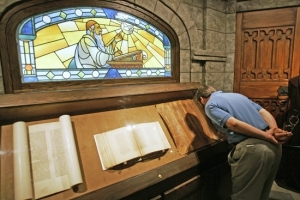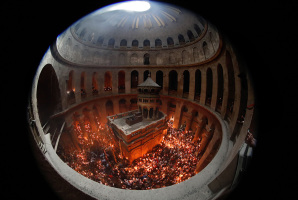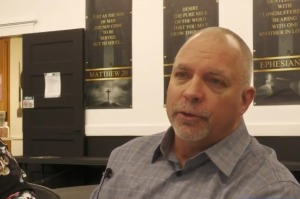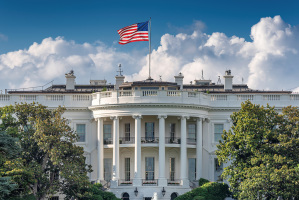Village threatens to expel Protestant families in Mexico
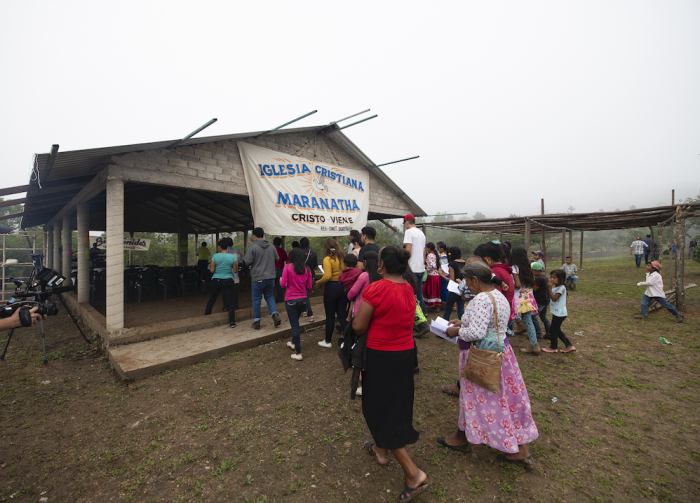
Two Protestant families from indigenous communities in central Mexico have been living with no access to water, drainage and government benefit programs for a year after they were ostracized for refusing to renounce their faith, and now the community leaders are threatening to expel them, according to a report.
The two families in La Mesa Limantitla village in the Huasteca region of Hidalgo state, who had earlier been told they would face forced displacement if they did not give their financial contributions for local Roman Catholic festivals or participate in their activities despite them being against their religious beliefs, are being threatened with expulsion, the U.K.-based group Christian Solidarity Worldwide reports.
In January, 10 families were asked to sign an illegal agreement saying they are renouncing their right to hold religious services to have their access to water and other essential services reinstated. However, the two families — Nemesio Cruz Hernández, Eligio Santiago Hernández and their wives, Maria Francisca Martínez Hernández and Angelina Martínez Hernández — refused to sign.
The families were imposed a fine of 57,700 Mexican pesos (roughly $2,800) each as part of the agreement. The state paid part of the fine, and the two families are unable to pay the remaining amount.
The village leaders held two meetings, one on Aug. 22 and the other Nov. 7, and told the families that “they face being cut off from essential services again or expelled from the community as they cannot afford to pay the rest of the fine,” CSW says.
The community leaders called a meeting to decide on the future of the families on Saturday. “We are afraid that not only will they suspend our access to services but that we will be expelled from the community,” Nemesio Cruz Hernández was quoted as saying.
“We call on local authorities in La Mesa Limantitla to cease harassment of these families and to allow them to practise their religion free from hindrance or illegal conditions,” CSW CEO Scot Bower said. “We also call on Hidalgo State Governor Omar Fayad Meneses to address the injustices against these families without delay, and to ensure that officials in his administration uphold rule of law.”
In a report, “A culture of impunity: religious discrimination in Mexico,” published in April, CSW shed light on the “common and widespread” occurrence of religious freedom violations in Mexico as well as increasing violence against religious leaders in the North American country.
Specifically, the report drew attention to violations happening within indigenous religious minority communities in the states of Chiapas, Guerrero, Hidalgo and Oaxaca as “little has been done” to address the violence and violations.
“Vulnerable communities continue to complain about high levels of impunity and the lack of protection granted by the state officials, who often side with those of the majority religion,” the report explained. “The lack of intervention by the state governments to protect freedom of religion or belief) is a clear indication that they continue to view (these) violations as community issues or minor ‘problems’ rather than violations of fundamental human rights.”
CSW noted that despite the overtly Christian percentage of the population, Mexico had a “complicated relationship with religion” as both Roman Catholics and Protestants had suffered throughout the country’s history.
According to the 2010 census, 83% of people in Mexico identify as Roman Catholic, while about 5% identify as evangelicals, 2% identify as Pentecostals, 1% identify as Jehovah’s Witnesses and 9% identify as members of other religious communities.
CSW said in the report that the Mexican government was “averse to involving itself in religious affairs” and tended to refrain from prosecuting those responsible for criminal attacks on religious freedom because of an “extremely strict interpretation of the concept of separation of church and state.”
There is a “significant overlap” between religions — especially between Roman Catholicism and pre-Columbian beliefs — that can lead to moderate religious freedom violations, it warned.
Although not listed this year, Mexico has in the past been listed by Open Doors USA on its annual World Watch List of countries where Christians face the most persecution.
















